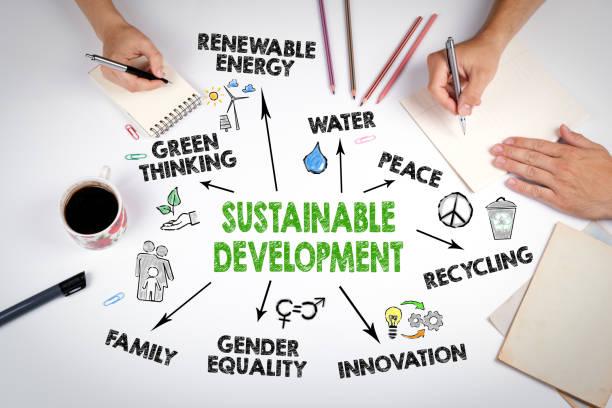How Sustainability Topics Are Influencing Modern Assignment Writing

How Sustainability Is Shaping Academic Focus
Sustainability has evolved from a niche interest into a central theme across education, research, and professional practice. With global awareness of environmental, social, and economic challenges, academic institutions are increasingly encouraging students to explore sustainability in their assignments. This shift reflects a broader societal commitment to responsible decision making, climate action, and ethical resource management.
Assignments now often require students to consider sustainability not just as a theoretical concept but as a practical framework for analysis. For example, essays may focus on sustainable business practices, renewable energy solutions, or ethical consumption. By integrating sustainability into academic themes, students develop critical thinking skills while learning to approach problems with long term societal impacts in mind.
Integrating Sustainability Into Coursework
One clear example of sustainability influencing assignments is in social care and professional studies. Students in these fields are encouraged to explore topics that balance efficiency with ethical considerations, such as equitable resource allocation or community focused environmental strategies. Courses may ask students to evaluate policies or propose sustainable interventions that benefit both individuals and broader communities.
For those tackling assignments in social care, tailored support like 5CO03 Professional Behaviours and Valuing People Assignment Help can guide students in aligning their work with sustainable practices while meeting academic standards. This kind of support ensures that students are able to critically engage with sustainability issues without compromising the quality of their submissions.
The Rise of Sustainability Oriented Research Questions
Research questions are the backbone of any academic assignment. With sustainability at the forefront, questions now frequently explore intersections of social, economic, and environmental concerns. Examples include:
-
How can urban planning reduce carbon footprints while promoting community wellbeing?
-
What are the ethical implications of resource allocation in healthcare systems?
-
How can businesses implement circular economy principles to reduce waste and improve efficiency?
Such questions encourage students to adopt a holistic perspective, considering both immediate and long term consequences. They also push learners to consult diverse sources, ranging from scientific studies to policy papers, thereby strengthening research and analytical skills.
Encouraging Critical Thinking Through Sustainability Themes
Assignments grounded in sustainability do more than convey knowledge—they foster critical thinking. Students must evaluate evidence, weigh competing priorities, and propose solutions that are environmentally, socially, and economically sound. This multidimensional approach helps students develop problem solving skills applicable in professional contexts.
For instance, a student tasked with writing about sustainable energy policies must examine the feasibility of different technologies, assess environmental impacts, and consider societal acceptance. This not only cultivates intellectual rigor but also instills a sense of responsibility toward global challenges.
Practical Applications in Various Disciplines
Sustainability is not confined to environmental studies. Its integration into assignment themes spans multiple disciplines:
-
Business and Management: Exploring green supply chains, corporate social responsibility, and sustainable marketing strategies.
-
Healthcare and Social Care: Analyzing ethical practices, community wellbeing, and resource efficient care delivery.
-
Engineering and Technology: Designing energy efficient systems, smart infrastructure, and renewable solutions.
-
Education and Humanities: Investigating the societal impact of sustainability policies, public engagement, and cultural adaptation.
By incorporating sustainability, educators prepare students to address contemporary challenges in a manner that is both informed and socially responsible.
Benefits of Focusing on Sustainability in Assignments
Integrating sustainability into assignment topics offers several key advantages:
-
Relevance: Students engage with pressing global issues, making learning more meaningful.
-
Skill Development: Analytical, research, and critical thinking skills are strengthened.
-
Career Readiness: Knowledge of sustainable practices is increasingly valued by employers across sectors.
-
Ethical Awareness: Students learn to consider the broader societal impact of their recommendations.
-
Interdisciplinary Learning: Sustainability connects concepts across disciplines, fostering a holistic approach.
These benefits highlight why sustainability themed assignments are becoming a cornerstone of modern education.
Challenges and Considerations
Despite the advantages, integrating sustainability into assignments can present challenges. Students may struggle with:
-
Complexity: Sustainability issues often involve competing priorities and complex data sets.
-
Access to Resources: Researching cutting edge sustainable practices may require access to specialized journals or industry reports.
-
Interdisciplinary Approach: Assignments may demand knowledge across multiple subjects, which can be daunting for some students.
Overcoming these challenges often requires strategic planning, time management, and the ability to synthesize information from varied sources. Seeking guidance from tutors or professional support services can be highly beneficial in navigating these complexities.
The Future of Assignment Writing and Sustainability
As sustainability continues to gain prominence, it is likely that assignment writing will evolve to reflect this trend. Future assessments may place greater emphasis on solution oriented thinking, requiring students to propose actionable strategies to address environmental and social challenges.
Moreover, digital tools and data analytics may play an increasing role, allowing students to model sustainable scenarios and assess their outcomes more accurately. This evolution signals a shift toward education that not only imparts knowledge but also empowers students to actively contribute to sustainable development.
Conclusion
Sustainability has emerged as a defining theme in contemporary education, profoundly influencing assignment topics and research approaches. By incorporating sustainability into academic work, students enhance critical thinking, ethical awareness, and professional preparedness. While challenges exist, the integration of sustainability offers an invaluable opportunity for learners to connect academic theory with real world impact, preparing them to navigate the complex, interdependent challenges of the modern world.
Assignments that explore sustainability equip students with the analytical tools, interdisciplinary understanding, and ethical frameworks needed to drive positive change. As sustainability continues to shape curricula, the emphasis on responsible, forward thinking scholarship will only grow stronger, preparing the next generation of leaders, professionals, and change makers.
- Sports
- Art
- Causes
- Crafts
- Dance
- Drinks
- Film
- Fitness
- Food
- Jocuri
- Gardening
- Health
- Home
- Literature
- Music
- Networking
- Alte
- Party
- Shopping
- Theater
- Wellness


